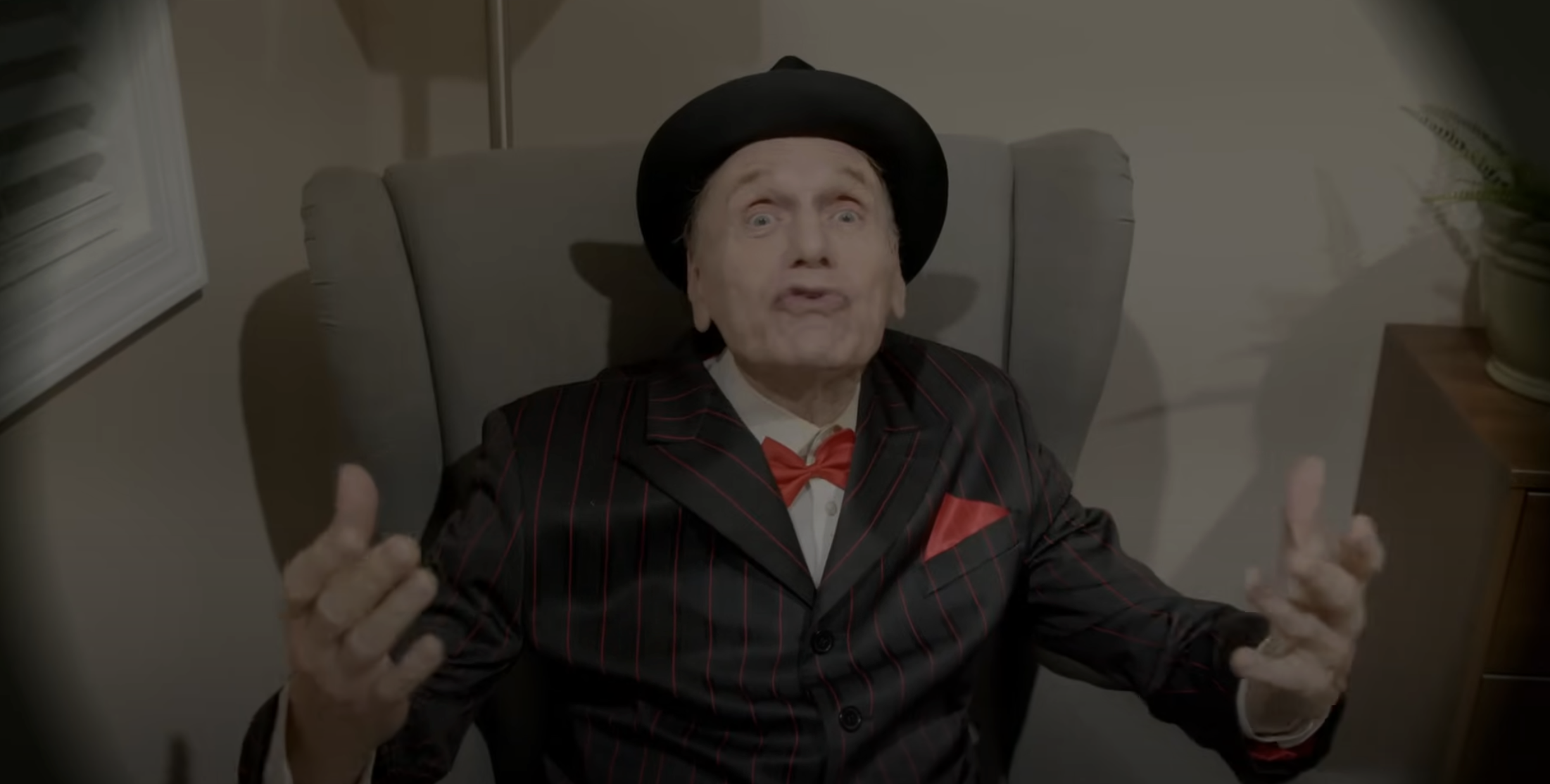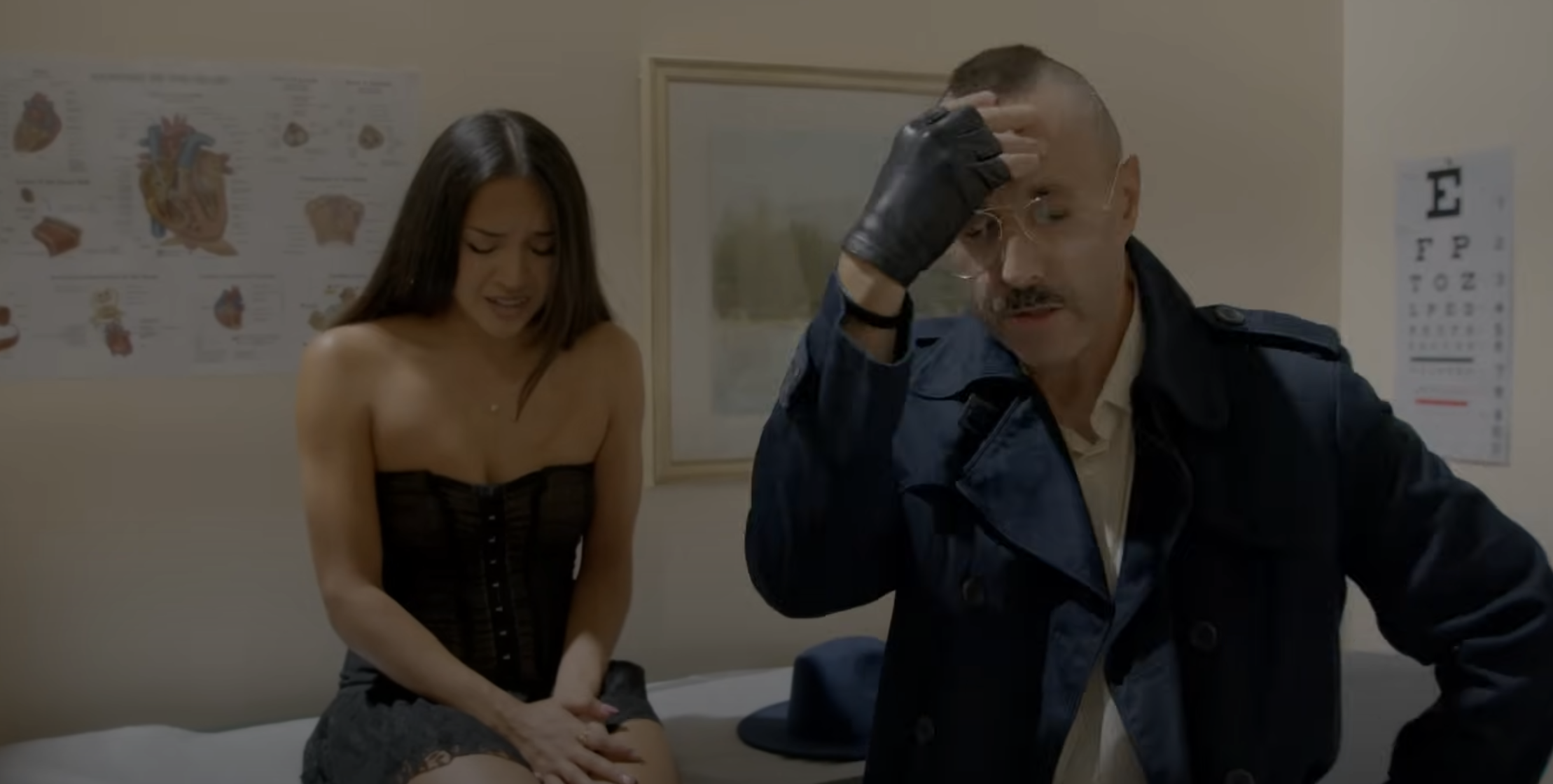Jamie Grefe’s Kamasutra Cowgirl is one of those rare indie features that straddles the line between surreal allegory and earnest melodrama. Marketed as a “suspense motivational drama,” the film embraces this dual identity, delivering a story that is as eccentric as it is strangely uplifting.
At its core, the film follows Roger (played by Grefe himself), a weary mortician whose life spirals into turmoil after he becomes entangled with his mistress Lacy (Kimberly Hernandez), a wheelchair-bound wife, Isabella (Sofia Studenikina), and a mysterious miracle worker known only as “The Horse” (Johnny Mask). Roger’s already fragile faith is tested when Isabella struggles to hold onto hope, and Lacy admits to owing money to ruthless club owner Manny Cross (Bryan Brewer). It’s here that the supernatural edges in: “The Horse” barges into their lives with promises of salvation, cryptic salesmanship, and the ambiguous power of miracles.
The film leans into theatrical dialogue, often circling themes of love, death, and beauty with almost ritualistic repetition.
Johnny Mask as The Horse steals the show—his rapid-fire monologues about miracles, numbers, and “the power of the horse” border on absurdist performance art, yet his manic charisma keeps you riveted. Scenes where Isabella struggles to rise from her chair or when Roger confronts Manny at the club pulse with tension, but the movie is less about physical stakes than spiritual ones.
Visually, Grefe and cinematographer Louis DeStefano ground the film in North Hollywood grit while punctuating the drama with surreal flourishes that recall low-budget experimental theater more than polished Hollywood fare.
The pacing can feel uneven, as conversations stretch into near-incantations, but that hypnotic quality is precisely what makes Kamasutra Cowgirl so unusual.
What lingers is the sincerity. Beneath the zany title and eccentric delivery lies a meditation on faith, brokenness, and the fragile human need for transformation. It’s a story about ordinary people reaching for miracles—sometimes sincerely, sometimes desperately, sometimes foolishly. Grefe doesn’t shy away from camp or awkwardness, but he uses it as a tool to crack open something genuine about hope and redemption.
At just 80 minutes, the film is brisk but dense, a fever dream that fuses melodrama, morality play, and motivational sermon. It won’t be for everyone, but for those willing to embrace its offbeat rhythm, Kamasutra Cowgirl is an unforgettable ride.
Verdict: A strange, hypnotic, and oddly moving tale that proves even the most eccentric premises can carry real heart.
Jessie Hobson




